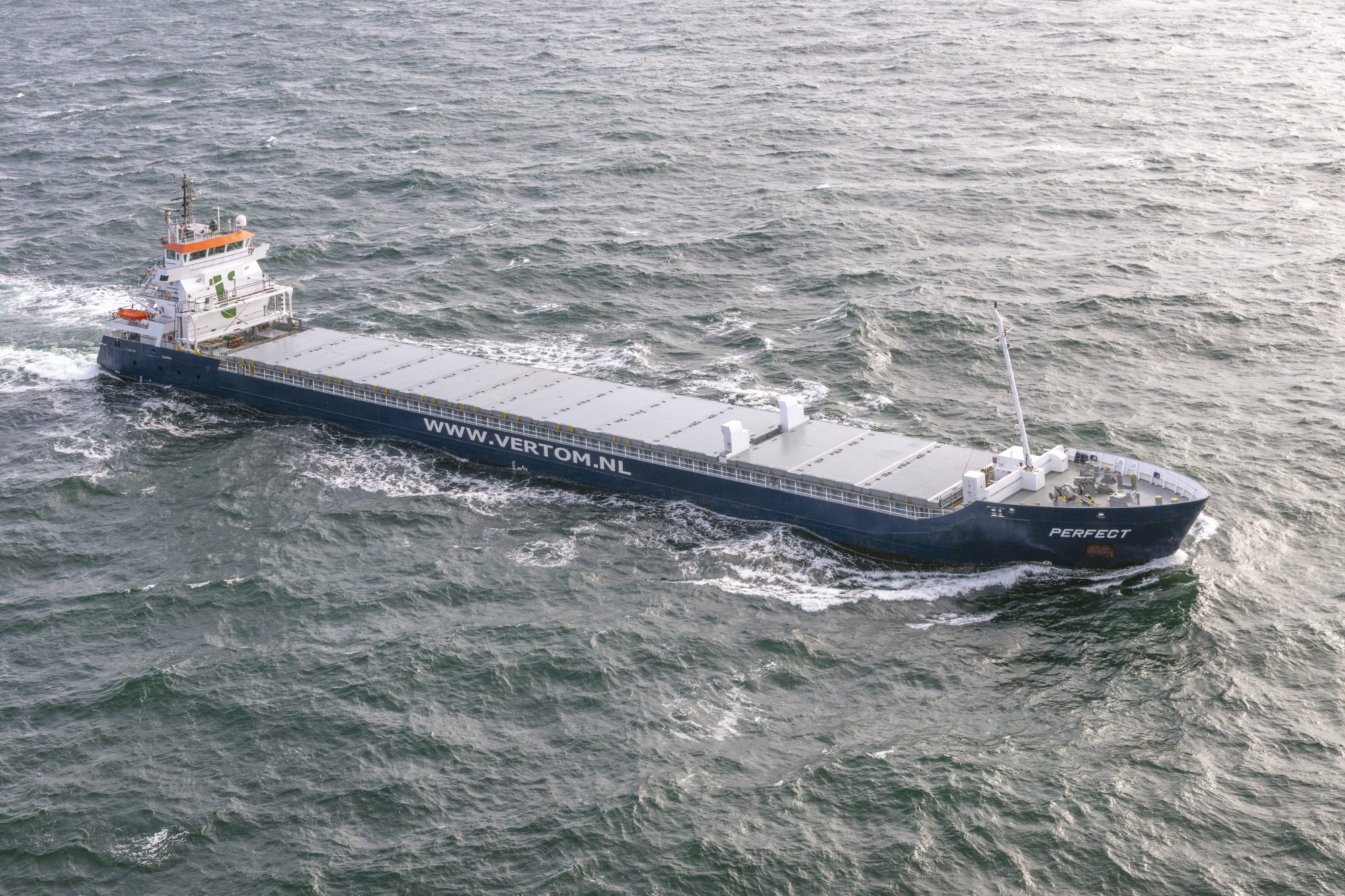Netherlands-based Econowind and Vertom announced their collaboration today to install wind-assist VentoFoil units on multiple vessels by the end of 2022. These will be retrofitted on the general cargo vessels MV Progress and MV Perfect, making it the first fleet order for Econowind.
Thomas van Meerkerk of Vertom states: “Vertom recognized the momentum for partnerships with a clear focus on decarbonizing our business activities and supply chain. After closely considering the business case of the VentiFoil units, we are pleased to extend our collaboration with Econowind with another order for two vessels.”

Next generation VentiFoil
Econowind will install the next generation VentiFoils on the vessels: the VentoFoil. The suction method has been upgraded, which results in limiting the amount of moving parts. This next step by Vertom allows Econowind to further invest in production methods, making production faster.
Collaboration Continued
Vertom has been studying wind assisted propulsion in more detail for their vessels since signing the contract for the retrofit of two VentiFoils on the MV Anna, which will be installed in June 2022.
Vertom made the decision to invest in the VentiFoil, by also closely considering the following key variables:
- EEXI, Carbon Intensity Index for existing ships;
- CII, CO2 per nautical mile in operation;
- EEOI, emission per cargo.
All ensuring a more sustainable performance by means of wind assisted propulsion.
Rolf van Leeuwen, Senior Technical Superintendent of Vertom states: “Installing the VentiFoils is a big step forward in reducing (Co2) emissions and fuel consumption for our current fleet. It is, along with our upcoming newbuilding program, a good step towards reducing our carbon footprint.”
Vessels more sustainable and cleaner by wind assist propulsion
Frank Nieuwenhuis, CEO of Econowind adds: “We are delighted to add Vertom to our customer base and to make this next step in making shipping more sustainable together. The more installations we can retrofit, the more data we can attain and learn from. This provides us with solid proof of how wind assisted ship propulsion is reducing emissions per nautical mile and improving vessels their EEXI / EEDI. This also serves as a justification for the investment; the costs of systems can be covered by the savings.”